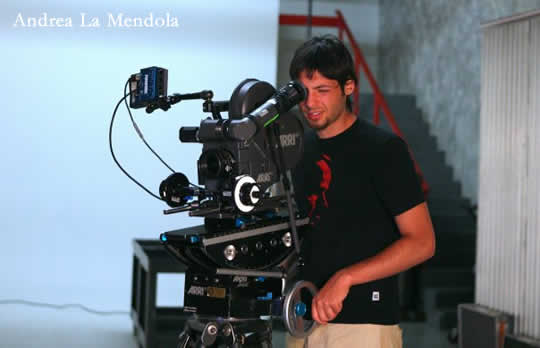 Andrea La Mendola, a young Italian filmmaker living in Los Angeles, was born in 1984 in Torino. Andrea received his Master Degree in Media and Cinema Engineering at Polytechnic of Torino in 2009 where he won a grant to make a research in the United States about the American Cinema. In United States, Andrea attended UCLA Extension’s film directing course.
Andrea La Mendola, a young Italian filmmaker living in Los Angeles, was born in 1984 in Torino. Andrea received his Master Degree in Media and Cinema Engineering at Polytechnic of Torino in 2009 where he won a grant to make a research in the United States about the American Cinema. In United States, Andrea attended UCLA Extension’s film directing course.
He co-founded “Indyca”, a film production company based in Torino where he works as producer and director for commercials, feature films, documentaries and short movies together with professionals such as Robert Miano, Franco Nero, Haley Webb, Jack Plotnick, Alessandro Gasman, Giuseppe Cederna and Gabriele Vacis.
Bijan Tehrani: Tell me a little bit about your background as a filmmaker.
Andrea La Mendola: I have always wanted to be an inventor, since I was a kid… I used to build weird machines or even disassemble every single electronic object that my parents gave me while growing up. Those days, I realized that mechanics, electronics, and physics weren’t really for me, so I started to invent stories, well, writing stories, building and designing the world around them, disassembling them to find the right details and rebuilding in my own way, with my vision. 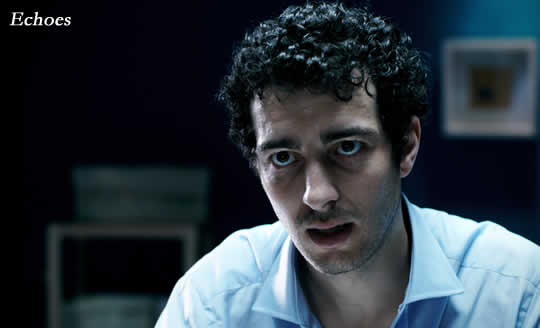
I started to take an interest in filmmaking when I was sixteen in my city, Torino, North West of Italy. I used to play with my video camera and editing software in order to make amateur short films for fun. Then, when I turned nineteen, I had to decide what kind of University I wanted to choose. My passion for filmmaking was already strong but there weren’t many good schools of filmmaking in Italy, so I preferred to go for a valid and safe education and I chose engineering. I got lucky because that year the Polytechnic of Torino started an innovative and interesting course called Cinema and New Media Engineering. So, after five years of school, I got my undergraduate and then my Master degree and I became a “cinema” engineer. In those really intense five years, I studied math, physics, economical science, sociology, visual effects, language of filmmaking, storytelling and much more. Well, as you can imagine I was much more into the filmmaking classes than math and physics! So between formulas and signal analysis I was watching movies and playing with cameras. During that period I decided to start my experience on field because I always thought that there, I would find my know-how, the real part of the learning process in order to become a director or a producer.
I started working for production companies on low budget projects like TV pilots, short films and documentaries. Of course I started as a Production Assistant, as most of the people in this field, where I got my first impression of working on set. And I realized how much hard and stressful the filming process can be. When I was on set I was always looking at directors trying to steal secrets… That was such a fascinating job to me. But I needed to follow a process, step by step in order to reach my goal. So, I 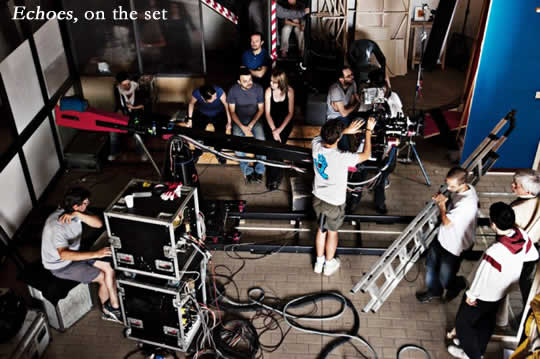 started working as a production coordinator, camera operator, electrician or editor… The more I was working in those types of roles, the more it was clear to me that directing was my passion. I always loved storytelling and I always loved to write stories. And when I turned twenty-one, I realized that those stories should became movies. So I made my first short films with colleagues I met at work. I like to mention the short movie “Time” because it was the first project where I decided to do things properly and to involve many professionals in my crew. I was 22-years-old and there I realized that directing could have been my profession. The following year, with three colleagues, we decided to create a company in my city and we called it, Indyca. We started making commercials, documentaries and short films and every year we were gaining experience and becoming a well-known name in the Italian industry, especially in the documentary field. We got more projects, larger in scale too, as we began to work with more and more collaborators from all around Europe and we also started to win national and international awards with our works. We are currently finishing our first feature film called Zoo School.
started working as a production coordinator, camera operator, electrician or editor… The more I was working in those types of roles, the more it was clear to me that directing was my passion. I always loved storytelling and I always loved to write stories. And when I turned twenty-one, I realized that those stories should became movies. So I made my first short films with colleagues I met at work. I like to mention the short movie “Time” because it was the first project where I decided to do things properly and to involve many professionals in my crew. I was 22-years-old and there I realized that directing could have been my profession. The following year, with three colleagues, we decided to create a company in my city and we called it, Indyca. We started making commercials, documentaries and short films and every year we were gaining experience and becoming a well-known name in the Italian industry, especially in the documentary field. We got more projects, larger in scale too, as we began to work with more and more collaborators from all around Europe and we also started to win national and international awards with our works. We are currently finishing our first feature film called Zoo School.
Last year in 2011, I decided that it was time to move abroad in order to start making international movies as a director. The best solution seemed to be Los Angeles where I already went a couple of times to shoot a documentary and to make some research for my University. In LA I already knew someone in the business, I knew the city and, well, Hollywood was where the movie business was, so, I said, “Ok, maybe LA is the right place!” I planned everything carefully and I realized that the best solution for me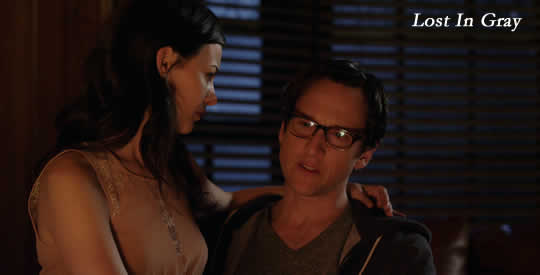 was to enroll at UCLA extension, the directing certificate, in order to get a Visa and make more connections in the business and refine my method as a director. In LA I decided to go through the same process I did in Italy, building my network, working on sets and making my own short movies. But agents and producers were asking me for feature film scripts, so I began writing concepts for movies first, then treatments and then entire scripts. “Lost In Gray,” my last short movie, is an idea I’ve been working on for a long time and it’s the first step to realizing my feature film based on the concept I developed in the short movie.
was to enroll at UCLA extension, the directing certificate, in order to get a Visa and make more connections in the business and refine my method as a director. In LA I decided to go through the same process I did in Italy, building my network, working on sets and making my own short movies. But agents and producers were asking me for feature film scripts, so I began writing concepts for movies first, then treatments and then entire scripts. “Lost In Gray,” my last short movie, is an idea I’ve been working on for a long time and it’s the first step to realizing my feature film based on the concept I developed in the short movie.
BT: In your first film, you have a very specific kind of style. It is kind of going toward a thriller movie. Is this something that you want to pursue in the future?
AM: Yes, “Echoes” is definitely a psychological thriller. I think that thrillers are one of the genres I like the most, and I like to play with controversial characters. I always try to combine the intimate life of my characters with an intense action, and I like to build my stories with different layers. The deeper you go, the more you get my message and my symbolism. I also like to mix genres to make the storytelling more interesting. I like to work with non-linear storytelling and editing, using in my own way, flashbacks and flash forwards. Rhythm, well, an intense rhythm, is such an important part of my movies. I think some of my future works will be a mix of different genres. I love the directors that want to challenge themselves with different genres, creating new ones or mixing them. I feel eclectic from this perspective, so I based my choices from time to time on this perspective and from what is around me and inspires me. In this period for example I’m working on “Lost In Gray” which is a kind of a mix 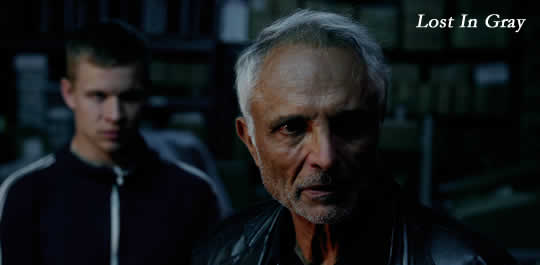 genre… let’s say a drama-thriller, even if it’s difficult to categorize, probably it’s not even really a genre film. I am also working on some sci-fi; this is the part of me that wants to try to get inside Hollywood and make big budget movies, but I know it’s not easy for a first time director to make big budget movies, that’s why I will probably start with “Lost In Gray.”
genre… let’s say a drama-thriller, even if it’s difficult to categorize, probably it’s not even really a genre film. I am also working on some sci-fi; this is the part of me that wants to try to get inside Hollywood and make big budget movies, but I know it’s not easy for a first time director to make big budget movies, that’s why I will probably start with “Lost In Gray.”
BT: Comparing “Echoes” and “Lost in Gray”, there is such a buildup in terms of the way things link together; there is a bigger growth in “Lost In Gray,” why do you think that is?
AM: Yes! As I said before, I like to build my stories in layers and create a complex path to follow. I try to build a kind of journey for the audience giving all the elements of the story little by little, without following necessarily in a chronological order. For some specific stories like “Echoes” and “Lost In Gray” this approach gives more dynamism and interest to the storytelling. I can see my growth in “Lost in Gray,” especially in the storytelling. I think it was my personal growth in the sense that since I moved here to LA I started studying much more about the screenwriting process. I realized that what makes the difference in movies is most of the time the storytelling and how the characters are shaped and change. When I started working as a director I was more focused on everything concerning the images and sound, a more cinematic way to make movies and definitely a more technical approach. With so much symbolism in there, maybe also because of my studies, but then I realized that there was something lacking. I found that the main problem was the storytelling and in a certain way also the lack of personal feelings I was putting in my stories. So, I started to be more focused on the story and the concept, more interesting themes and messages, trying to steal from my real life. I got deeper in myself. For that, LA and the people around me really helped me a lot because they put me in a position where I really had to work on myself, to know myself better. Also, I studied a lot by watching movies and seeing how the stories were told. In “Lost In Gray,” I put all of these elements together. And because it was based on my feature film script, I had many more elements to play with and with more research about the topic already done. The concept is intriguing, the message very up to date and relevant, and that’s why I’m still thinking that it should be my first feature film as a director.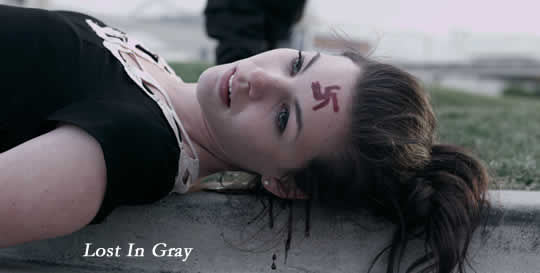
BT: How did you cast the film?
AM: The main problem I was dealing with was that I did not have many connections in LA compared to Italy, so building my whole cast and crew was really hard. I involved in the project the few people I knew at that time and they brought a list of names. With this list of names I made my choices. I really had some good advice. I also went through auditions and some of the actors I found come from there. We went through many, many faces and performances and we realized very soon that the people we chose were the right people. Everybody was great and I am very happy about all of them. I bet that some of the actors involved in “Lost In Gray” will become big actors in Hollywood in the years to come.
BT: What is your next step, because to me your films show your ability as a film director?
AM: Basically, the first thing that I am thinking now is to complete and review the feature film script because there are still some parts that I really need to develop more, but once I complete the script, very soon by the way, I will start pitching the story to production companies, agents and distributors with the short film as a good reference of my work and style. And, of course, I really want to go for the festival circuit, which could be very appropriate for this type of short film, in order to get more exposure and have more feedback from the audience and critics. I’m trying to do it as fast as possible because I want to be ready to shoot the feature in one year. And then who knows, maybe a Studio movie… or the sci-fi I’m writing. We will see.
BT: Who are some of your filmmaking influences?
AM: Many! I like so many different types of styles and genres. Among, Italian directors, I would definitely say I like Fellini the most. I really like his vision, his surrealistic and visual approach to the storytelling. From the new generations, I like Crialese, a Sicilian director and Sorrentino. But honestly I grew up with the American movies, with the big directors of Hollywood. Scorsese, Coppola, Kubrick, Spielberg, Zemeckis and now Fincher, Inarritu, Del Toro, Nolan. Expectable names, right?! And every time I start developing a new movie I always watch their movies, again and again; you know all the great movies that combine good entertainment, a powerful cinematic approach and an authorial style and message.

